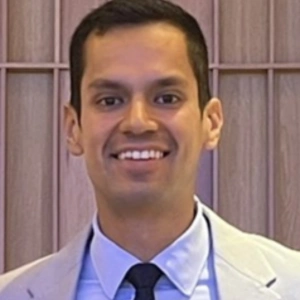
Sebastian Castro Ortega
Bellvitge Hospital, SpainPresentation Title:
Anti-inflammatory drugs in coronary syndromes: An update
Abstract
Inflammation is closely related to the pathogenesis of ischemic lesions, fibrosis, and the cardiac remodeling process. It is for this reason that anti-inflammatory treatments, by inhibiting inflammatory cytokines, have been widely studied. Drugs directed against the inflammatory factor, such as canakinumab and classic anti-inflammatory drugs such as colchicine, have confirmed the inflammatory theory of coronary heart disease due to their promising results. Due to the results of different studies, the European guideline for the prevention of cardiovascular diseases from August 2021 makes a IIb recommendation with level of evidence A for the use of colchicine in patients with established cardiovascular disease, in secondary prevention, particularly in those patients poorly controlled for other cardiovascular risk factors1. While in acute coronary syndrome there is no solid information for its indication. On the other hand, medications such as allopurinol, methotrexate and tocilizumab have also been studied in different ischemic scenarios, but with negative results. At the moment there are multiple studies underway on the effectiveness and safety of anti-inflammatory agents, the results of which are expected to define their application in daily practice.
Biography
Jorge Sebastián Castro Ortega (Cuenca, Ecuador, 1995) is a cardiologist with national and international training. He graduated as a General Physician from the University of Azuay and completed his rural health year with Ecuador’s Ministry of Public Health in 2019. He then completed his Cardiology residency at the German Hospital in Buenos Aires (2020–2024), where he ranked first among international applicants in the national exam. He holds certifications in transthoracic echocardiography (UBA/SAC 2024), Advanced Cardiovascular Life Support (ACLS), and Advanced Trauma Life Support (ATLS). He has worked as a cardiologist in top institutions in Ecuador and Argentina, including the German Hospital, Clínica Santa Bárbara (Gualaceo), and Hospital San Juan de Dios (Cuenca), where he is also a shareholder. Scientifically active, he has published in indexed journals and presented at major conferences such as ESC Congress 2024, the Argentine Society of Cardiology, and CONAREC. His research on albumin-to-creatinine ratio as a predictor of long-term mortality in acute coronary syndromes has been well recognized. He is currently an Interventional Cardiology Fellow at Hospital de Bellvitge in Barcelona, Spain, continuing to expand his expertise in complex cardiovascular procedures.


